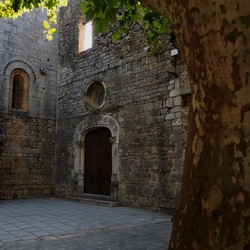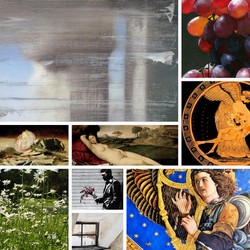- Details

Update 15/6. The article I wrote in February doesn't make sense anymore. I could have deleted it to write a new one with the new programme, but I preferred to update it by copying at the end the original text. Let’s not forget too soon that one day a virus arrived that upset everything.
- Details

More than one hundred composers. In particular, 104 composers and 439 songs altogether. I must admit that when I checked the numbers for this birthday post, that figure impressed me; I don't think I would be able to list one hundred composers of song if you would ask me now. However, there's another way of set out that: Most composers wrote some songs at some time or other in their careers, so I hope we keep on listening to new composers for a long time, even as unexpected as Bruckner, for instance.
- Details

I had another post ready for this week, but there was a last minute change due to an unforeseen musical event. Soprano Katharina Konradi should have sung today at L'Auditori, within the Schubert Lied series; it was a concert postponed since November due to the singer's illness but, unfortunately, she will be not able to sing either. It's a shame, because she's a great singer, but I hope we'll have more chances to listen to her. We're listening instead another young singer, mezzo soprano Klaudia Tandl, who is proposing a different programme.
- Details

What superpower would you like to have? The ability to be invisible, to read minds or to fly? I wish I had the gift of tongues. To understand any language as if it were my native one. I would even be happy with a minor superpower: the ability to reach C1 level in any given language within a bunch of months.
- Details

For centuries in Europe, killing unfaithful wives and their lovers was morally and legally accepted; a man's duty was to protect one of his most valuable properties (his children, not his wife). The most famous case in the music world is that of Carlo Gesualdo, an Italian prince who wrote wonderful music. For us, his crime was murdering two people; for his contemporaries, his fault was not killing them, as he was absolutely entitled to, but humiliating wife and lover noble families by leaving their naked and mutilated bodies on public display.












